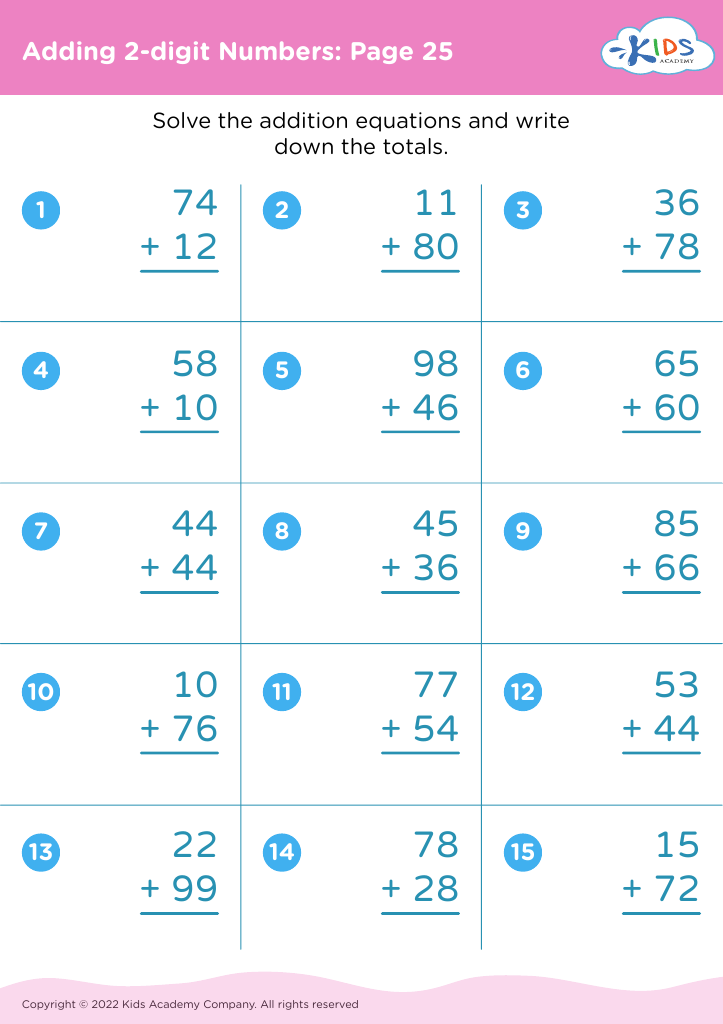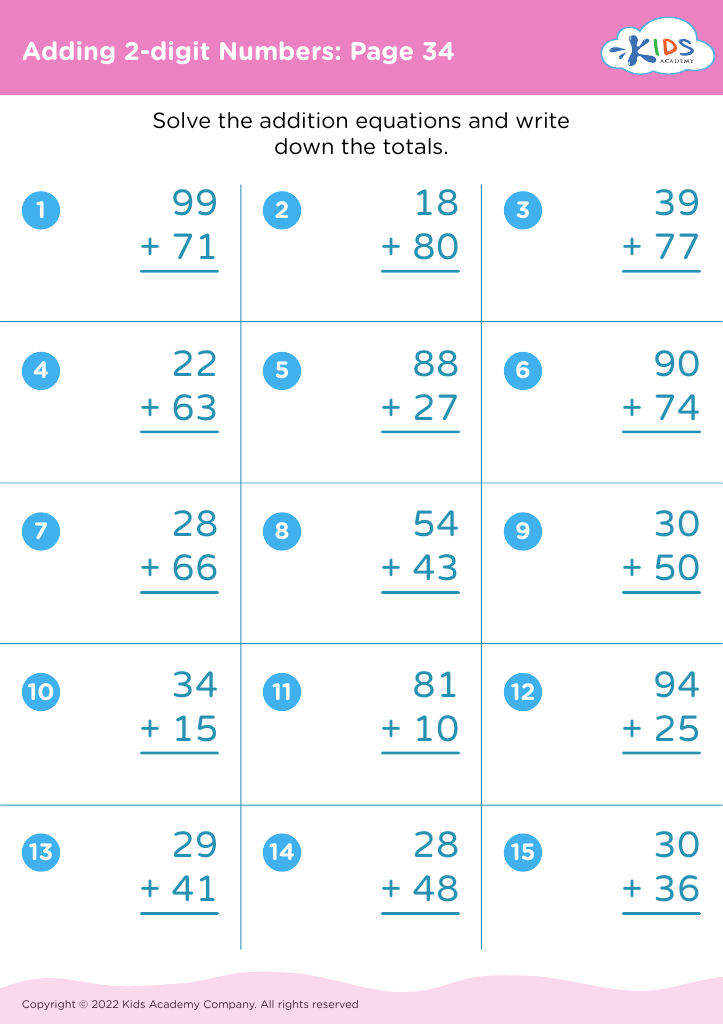Develop logical thinking Adding 2-digit Numbers Worksheets for Ages 5-7
3 filtered results
-
From - To
Unlock the power of logical thinking with our Adding 2-Digit Numbers Worksheets for ages 5-7! These engaging resources are designed to enhance young learners' numerical skills while fostering critical thinking. Our carefully crafted worksheets introduce children to the concept of addition through fun and relatable exercises. Each activity promotes problem-solving abilities and encourages children to explore different methods of calculation. As students practice, they not only master 2-digit addition but also build a strong foundation for future math skills. Perfect for classroom use or home learning, these worksheets make math enjoyable, boosting confidence and curiosity in young mathematicians.
Developing logical thinking through the addition of 2-digit numbers in children aged 5-7 is critical for several reasons. First, logical thinking lays the foundation for more advanced mathematical concepts. Engaging with addition at this stage helps children understand the relationships between numbers and enhances their problem-solving skills. As they learn to manipulate 2-digit numbers, they also begin recognizing patterns and building number sense, promoting a deeper understanding of mathematics.
Additionally, these early experiences with problem-solving reinforce cognitive skills and boost confidence. Children who master these concepts are more likely to tackle challenging material in later grades. Furthermore, logical thinking is not solely confined to mathematics—it extends to everyday decisions and critical thinking in various subjects.
By focusing on logical processes in addition, we equip young learners with vital analytical tools for their educational journey. Teachers and parents can foster an environment that encourages curiosity and exploration, making math a fun and engaging subject. Ultimately, nurturing logical thinking skills at this age helps create proficient learners who can approach not just math, but a multitude of life challenges with confidence and competence. Investing time in these foundational skills will yield long-term benefits in children’s academic and personal growth.



















